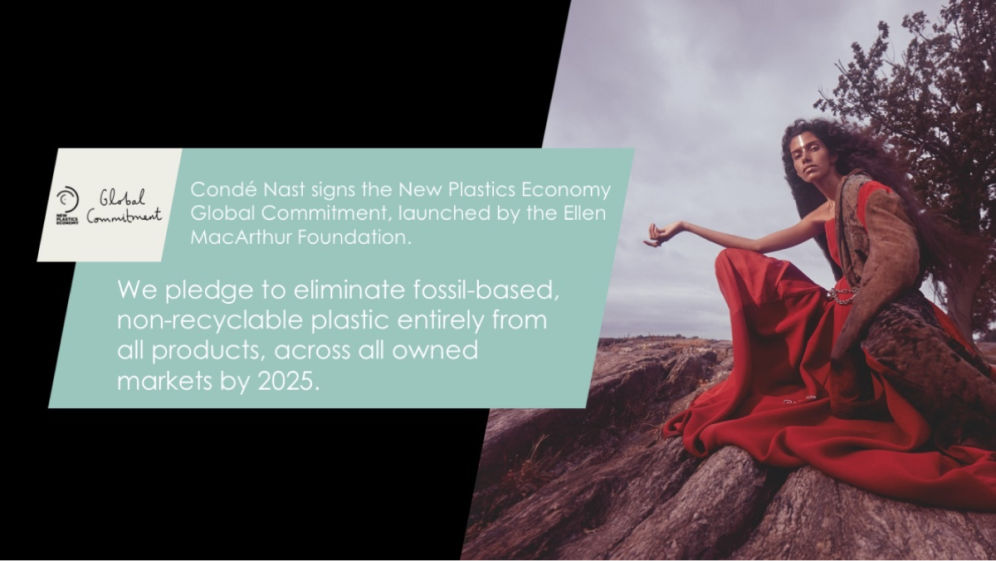Condé Nast has signed the Ellen MacArthur Foundation’s New Plastics Economy Global Commitment. As a signatory, the global media company is making time-bound packaging pledges and now joins over 400 organisations on the journey to build a circular economycircular economyA systems solution framework that tackles global challenges like climate change, biodiversity loss, waste, and pollution. It is based on three principles, driven by design: eliminate waste and pollution, circulate products and materials (at their highest value), and regenerate nature. for plastics.
Condé Nast owns some of the world’s leading fashion titles including Vogue, GQ, and Vanity Fair, and will use the influence of its brands, reaching more than one billion people around the world, to inspire action towards systemic change and address the critical issue of climate change.
Launched in 2018 by the Ellen MacArthur Foundation in collaboration with the UN Environment Programme (UNEP), the New Plastics Economy Global Commitment’s vision of a circular economy for plastic is one where plastic never becomes waste or pollution. Three actions are required to achieve this vision and create a circular economy for plastic: eliminate all problematic and unnecessary plastic items; innovate to ensure that the plastics we do need are reusable, recyclable, or compostable; and circulate all the plastic items we use to keep them in the economy and out of the environment.
Through the New Plastics Economy Global Commitment, Condé Nast has pledged to entirely eliminate fossil-based, non-recyclable plastic from all products, across all owned markets by 2025. Fashion brands that have pledged to tackle plastics waste and pollution as part of the Global Commitment include H&M Group, Inditex, Stella McCartney, and Walmart






